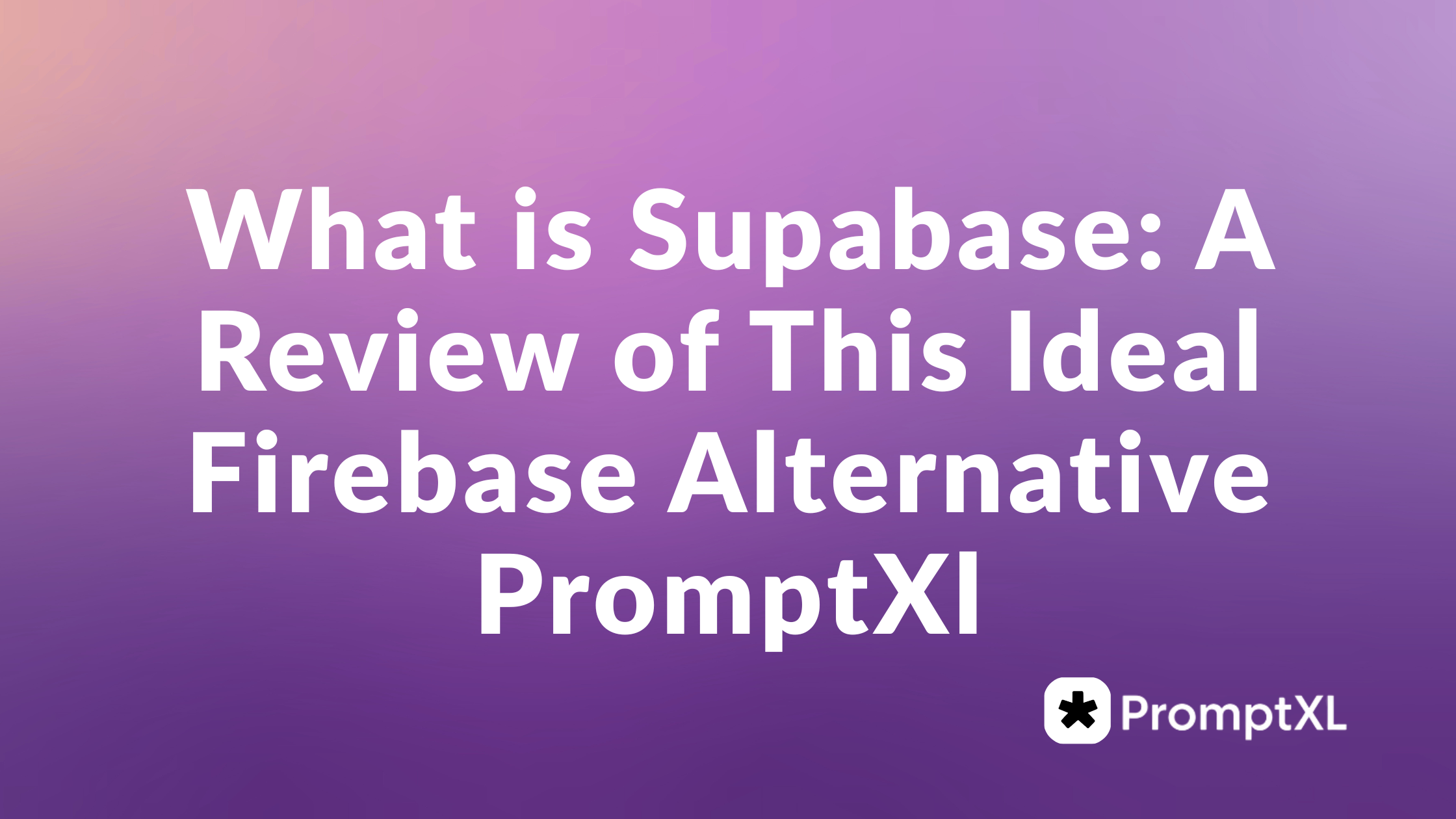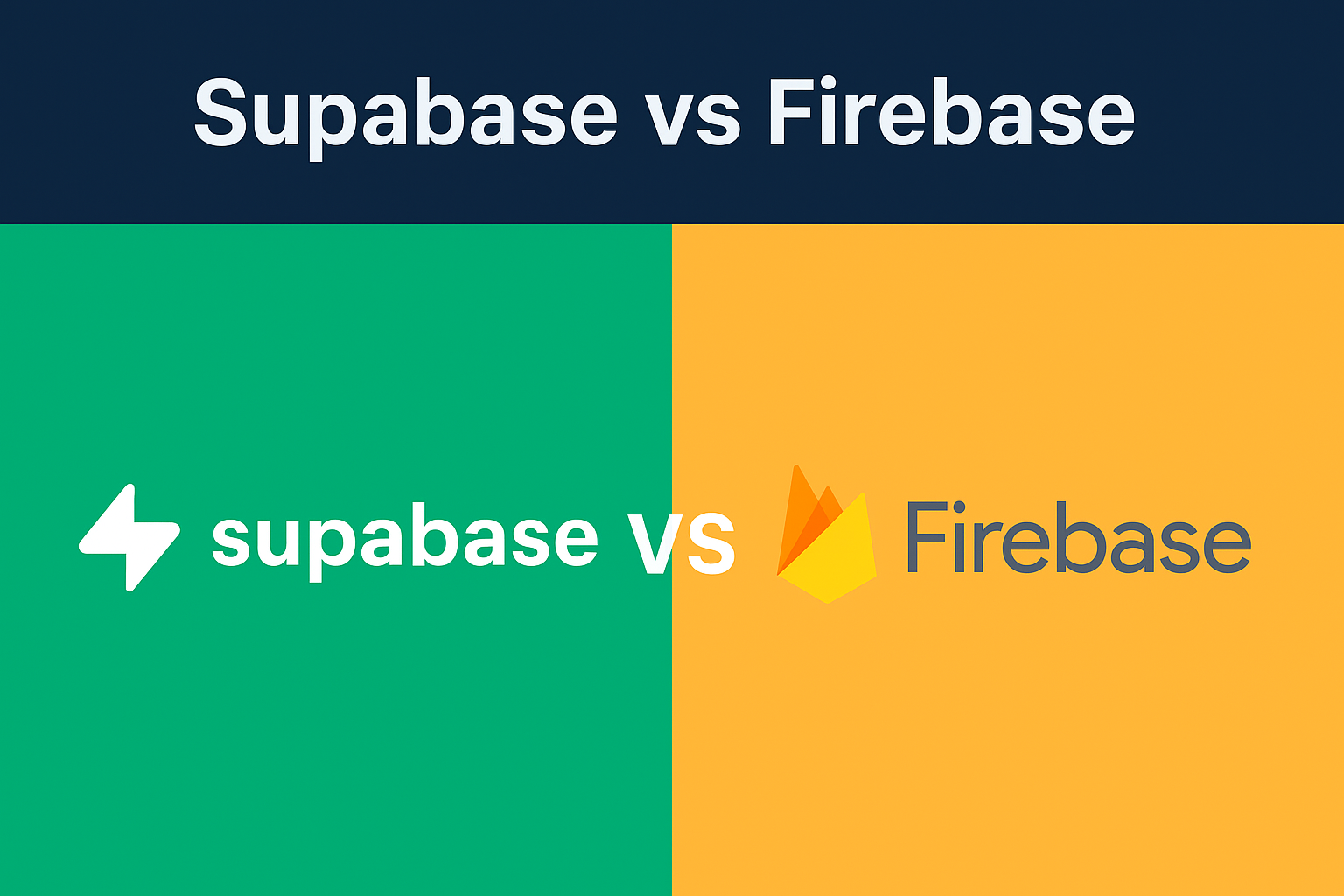
In today’s fast-paced development world, choosing the right backend platform is a critical decision. Two names dominate this space: Firebase, a Google-powered BaaS (Backend-as-a-Service), and Supabase, an open-source alternative often called the “open-source Firebase.” Both platforms aim to help developers build applications faster, without worrying about server management. But how do they compare? Let’s dive deep into Supabase vs Firebase and understand which one is ideal for your project.

What is Firebase? Understanding Firebase Backend Services
Firebase, developed by Google, is a proprietary Backend-as-a-Service. It offers tools like:
- Cloud Firestore (NoSQL Database): A document-based database for unstructured or flexible data models.
- Authentication: Pre-built login methods (Google, Facebook, Email/Password, etc.).
- Cloud Functions: Serverless backend logic triggered by events.
- Cloud Storage: File storage with global distribution.
- Analytics and Hosting: Deep integration with Google’s ecosystem.
Firebase is especially strong in real-time data synchronization and automatic scaling, making it a go-to choice for chat apps, collaboration tools, and applications needing instant updates.
What is Supabase? The Open-Source Firebase Alternative
Supabase is an open-source backend platform built on PostgreSQL, a relational SQL database. Unlike Firebase’s NoSQL approach, Supabase is SQL-first, offering:
- Full PostgreSQL database with advanced queries and relationships.
- Authentication with Row-Level Security (RLS): Fine-grained access control.
- Realtime via Postgres Changes: Subscribe to live updates on data.
- Edge Functions: Serverless functions running close to users.
- File Storage: Integrated with the database for seamless file handling.
Because Supabase is open-source, developers have the flexibility to self-host, customize, and avoid vendor lock-in, which is often a concern with Firebase.
Supabase vs Firebase: Database Comparison
1. Database Technology
- Firebase: Uses Cloud Firestore (NoSQL, document-based). Great for unstructured data, but struggles with complex queries and relationships.
- Supabase: Built on PostgreSQL (SQL, relational). Perfect for structured data, complex queries, and applications needing strong consistency.
2.Real-Time Data in Supabase vs Firebase
- Firebase: Firestore automatically syncs across devices in real-time.
- Supabase: Offers realtime via Postgres Changes with subscriptions. Both excel here, but Supabase’s SQL foundation provides more control.
3. Authentication and Security: Supabase vs Firebase
- Firebase: Supports multiple login providers with robust Google integration. Security rules are flexible but tied to its NoSQL model.
- Supabase: Offers built-in auth with multiple providers and row-level security, allowing granular control over data.
4. Serverless Functions & Edge Computing Comparison
- Firebase: Cloud Functions are event-driven and deeply integrated into Google Cloud.
- Supabase: Edge Functions let you run server-side logic closer to the user, reducing latency while working natively with PostgreSQL.
5. File Storage: Firebase vs Supabase Solutions
- Firebase: Cloud Storage is highly scalable and globally distributed.
- Supabase: File storage is integrated and works seamlessly with Postgres, simplifying usage in SQL-based apps.
Pricing and Scalability: Supabase vs Firebase
- Firebase: Usage-based pricing (reads, writes, deletes). Costs can spike unpredictably as your app scales.
- Supabase: Tiered pricing. Predictable costs, unlimited API requests, and authentication users in the free tier.
For small apps, both offer generous free tiers. For scaling, Supabase’s predictability can be an advantage, while Firebase excels at hands-off auto-scaling.
Developer Experience: Supabase vs Firebase Ecosystem
- Firebase: Large community backed by Google, tons of documentation and pre-built integrations.
- Supabase: Rapidly growing open-source community, with contributions, plugins, and GitHub activity driving innovation.
Case Studies: Migrating from Firebase to Supabase
- Firebase: Prioritizes ease of use, quick setup, and instant scalability, but sacrifices flexibility due to its proprietary nature.
- Supabase: Offers full SQL power, custom hosting options, and open-source transparency. Developers get more control but may face a steeper learning curve.
Conclusion: Supabase vs Firebase – Which One to Choose?
When choosing between Supabase vs Firebase, the decision comes down to your project needs:
- Choose Firebase if: You want real-time features, easy Google Cloud integration, and minimal setup effort. Perfect for startups needing fast MVPs.
- Choose Supabase if: You value SQL, open-source flexibility, predictable pricing, and long-term control over your backend. Ideal for projects with complex data structures and security requirements.
Related Topic: No Code Development

